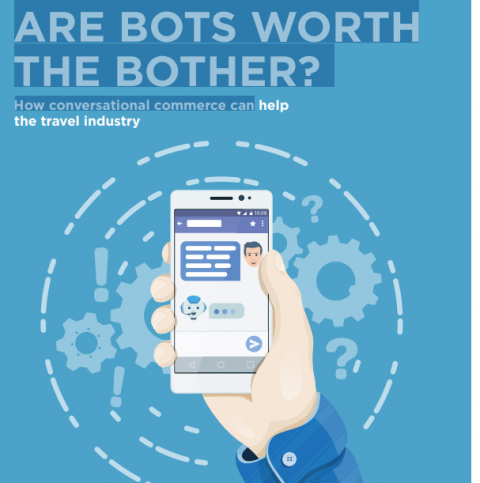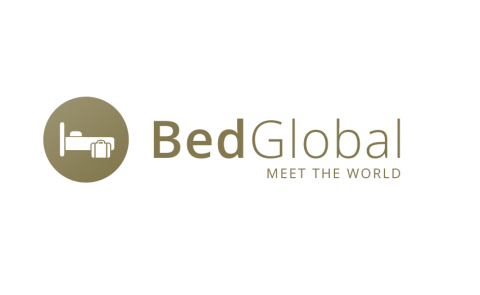Lots of Hotels, a subsidiary of Webjet Australia and New Zealand’s largest OTA was established in Dubai and London in 2012. Their aim is to provide a simplified business – to – business solution that places the broadest range of hotel rooms on sale worldwide to the hands of their partners every day. Lots of Hotels offers hotels from multiple suppliers and via direct contracts with global hotel chains and independent properties ranging from one to five star hotels and resorts, offering rooms at more than 200,000 hotels worldwide.The Lots of Hotels supply model ensures clients find the best year- round rates and availability whenever and wherever they travel. The Lots of Hotels equation is an amalgam of experience, leadership, passion and motivation put together to cater all clients’ accommodation requirements. Their friendly team is focused on delivering pristine service standard to meet and exceed clients’ expectations. About Entrada Entrada is an online travel reservation platform that allows the users to buy, sell and distribute via Internet, all of their travel related products & services. It also offers a flexible and customizable B2B, B2C & B2B2C online booking engine which couples together schedules & LCC flights with various land services (hotels, transfers, packages, rental cars, etc.) Currently, there are more than 800000 online bookable hotels in our system, more than 10,000 transfer services in 80 countries & 2,500 major cities, rental cars in 180 countries & 10,500 locations, scheduled and private flight fares from Sabre and from more than 100 low-cost airlines.

Uncategorized
As Entrada Travel Sales System Technology is continuously improving, we proudly announce that Hotels Pro, a global hotel supplier, integrated in the Entrada platform has launched a new generation search and booking API, Coral. Aggregating and consolidating a global inventory from company’s wide range of contracted hotel suppliers, the brand new Coral API allows clients to search and book the best available hotels with the lowest prices while minimizing the booking errors and price discrepancies. Providing simple access to a complex data by smooth integration and a cache with high accuracy in rates and availability, Coral puts no limit on search results. Being faster and lighter than ever along with its distinctive features such as benefit from wholesale prices, check availability function, search by single and multiple hotel codes, geo location and destination, Coral handles multiple issues at once by removing the complexity of multiple integrations. With its ability of scaling up to billions of API calls (monthly), Coral also draws attention to its distributed architecture that leaves no room for any single point of failure. Hotels Pro Coral API main features are summarized below: *1 second average response time *95% of requests are answered within 6 seconds *High cache reliability *Single hotel, multiple hotel, destination and geo searches are available *Cancellation policy in search responses (according to supplier) *Required provision step to minimize possible booking errors *500K+ hotel inventory and high quality images *Static data translations in 26 languages. (Fields such as hotel name, destination name and region name fields) *Static api to dynamically update inventory *Mapping service based on your inventory We hope you enjoy the New API!
Artificial Intelligence is the buzzword for 2017. AI has infiltrated industries as diverse as personal shopping, executive recruitment and medical diagnostics. Transformational fervor around AI has fizzled in the past, but AI-powered messaging platforms have energized innovation of late. Microsoft Harnesses Machine Learning for Sourcing “The only way that we can serve our travelers is by turning them into data,” travel management provocateur Eric Bailey told BTN. As Microsoft director of travel, venue sourcing and payment, he has pretty much ditched travel policy for a traveler-centric approach, and machine learning has emerged as critical to the effort. Enter the chatbot travel assistant. Startups have thrown down the gauntlet, enabling “virtual travel assistants” as early as 2015; Pana’s irreverent pitch to enterprises in October 2015 began: “Friends Don’t Let Friends Use Concur.” Several more have followed suit: HelloGbye, Mezi, TripActions, 30SecondsToFly and others have introduced mobile travel assistants, touting booking capabilities, with or without integrated corporate policies; offering proactive alerts and disruption support; and even expanding recommendation capabilities to local restaurants and entertainment, which is atypical for corporate travel agency services. So far, the startups have targeted individual corporate travelers and smaller enterprises that have lightly managed programs, minimal preferred supplier agreements and straightforward travel itineraries. But it gets sticky for a bot to digest data and make judgments for negotiated, global managed travel programs that contend with policy parameters, frequent trip disruptions and traveler-initiated changes. That hasn’t stopped established managed travel players from Concur to a number of travel management companies from pursuing similar AI strategies. After it acquired Hipmunk last October, Concur was particularly excited about the Hello Hipmunk AI tool, Concur EVP of platform and data services Tim MacDonald told BTN. He said Concur planned to act as an incubator for Hipmunk to work on bots to benefit the Concur enterprise product suite. On the TMC front, Carlson Wagonlit Travel’s Carla avatar has been in beta for several years, while Australia-based FCM Travel Solutions introduced its message-based mobile travel assistant Sam, which stands for SmartAssist Mobile, last July in the U.S. FCM plans to roll Sam out to Europe and Asia this year. American Express Global Business Travel has not announced a chatbot, but Oliver Quayle, VP of product marketing and innovation for Amex GBT and KDS now that the two have merged, cited GBT’s database as central to KDS’s post-merger innovation map, which looks like it will favor AI and machine learning and may build on the predictive and personalized approach of KDS’s Neo booking tool. Startup Ditches Mega for App Solution ThoughtSpot may be a small company, with 100 travelers, but it’s got big ambitions and international office locations. After launch, it chose a mega agency and a well-known expense provider. ThoughtSpot enjoyed the service and the agency rates, but as an agile startup, it was looking for a level of technology innovation it wasn’t getting from the big agency. What’s the Goal? “When I talk internally, I always tell the story of the great travel agent during my time as a road warrior at IBM when I traveled 150 nights a year,” said Travelport senior director of product innovation Nathan Bobbin. “She knew everything that I wanted in my constantly changing schedule. She’d say, ‘Hey, I know you’re supposed to go home, but instead, you are going to Tel Aviv. So here’s the trip I booked for you. You’re at the Marriott because I know you love Marriott; I didn’t take the early flight because there was no aisle seat. There’s an extra connection, but I knew you’d be OK with that …’ And she was always right because she knew all that stuff about me. That’s the experience powering the dream of AI, machine learning, personalization and mobile, where all those capabilities come together so that everyone can have one of those amazing travel agents in their pocket.” Microsoft global director of travel, venue sourcing and payment Eric Bailey painted a comparison that makes today’s standard corporate online booking tool experience seem absurd. “You can almost go through the insane conversation you would have with an OBT: ‘Please give me an hour with a plus- or minus-three-hour range as to when you want to leave. In return, I’ll give you the lowest price without any reference to what your preferences are, and I don’t care if it’s a dollar cheaper or $1,000 cheaper.’” Personalization and predictive results are just two features chatbot travel assistants aim to provide. Amid 24/7, globalized business and travel disruptions, imagine round-the-clock alerts and predictive rebooking support. Also within reach are expanded services that can recommend local restaurants and make reservations or that can identify entertainment and fitness options that appeal to the individual traveler. Indeed, some apps like Mezi and Pana claim they already can handle some of these details. How Do We Get There? The short answer is data—and lots of it. Co-founder and CEO Swapnil Shinde described Mezi’s behind-the-scenes structure: “When a user sends a message to Mezi, several different chatbots begin collaborating with one another. If AI detects that the user’s intent is to look and book flights, a flight chatbot will start talking to the customer. If the intent is hotel, a hotel bot will talk to the customer. So then we have a bot for dining and one for payments; we even have a bot for reminders and marketing.” Aternate Route for AI Bots: Agency Tech Everyone who talks about travel bots mentions Lola. Co-founded by Paul English, former co-founder of Kayak, it has focused on consumer travel, though its website refers to “premier partnerships” that give executives of “select companies” access to its services. Early press focused on the team’s effort to evolve travel agency tech, with an expectation that the company would pursue that market, where artificial intelligence could transform the current green-screen environments and increasingly fragmented content. All these bots are powered by data feeds. Mezi uses global distribution system content, Expedia content, Priceline content. TripActions, for another example, has agreements
Bedglobal is a global online B2B channel, founded in Athens Greece. They are a dynamic company consisted by committed professionals in digital tourism. ΒedGlobal provides high quality digital services on FIT bookings, group bookings, tours and packages, transfers and car rentals around the globe. They also cooperate with local tour operators, wholesalers and hotels in direct. Bedglobal is committed to provide high quality services at the most competitive rates. www.bedglobal.com See Entrada’s Portfolio
– Upload and manage your own travel agency products & contracts. – Get products like air tickets, hotels or transfers from other Entrada affiliates. – Promote your own hotels and travel services to about 5,000 Entrada affiliated, global travel agents and WEB travel sites! – Create,save & update online customer quotations & trips including all above products and services. – Manage existing sales networks and create new sales channels. – Promote Entrada white-label products with wholesale prices, resell them to your clients as your own, adding your mark up and policies. – Multilingual,B2B or B2C web site featuring complete worldwide travel services, online bookings and online credit card clearance. – Extensive reservation management system with detailed reporting and XML connections to third party back office systems. E.g. CRM & accounting solution from SAP Business One, accounting system from Panasoft, and other vendors. -Customizable I-Frame or XML solution to create your own web site booking engine with your own color theme and your personal information.



